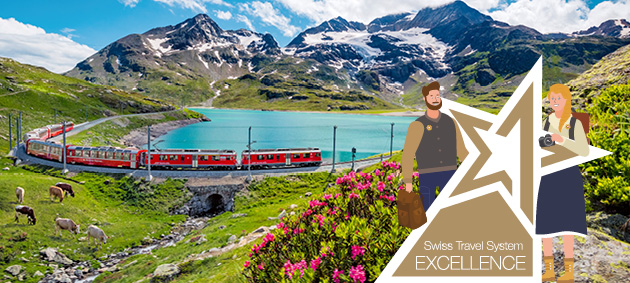Menu
Search
Often when we talk about sustainability, we are overwhelmed by the scope of technical figures and tend to forget the small, but oh so impactful things, that are part of everyday life.
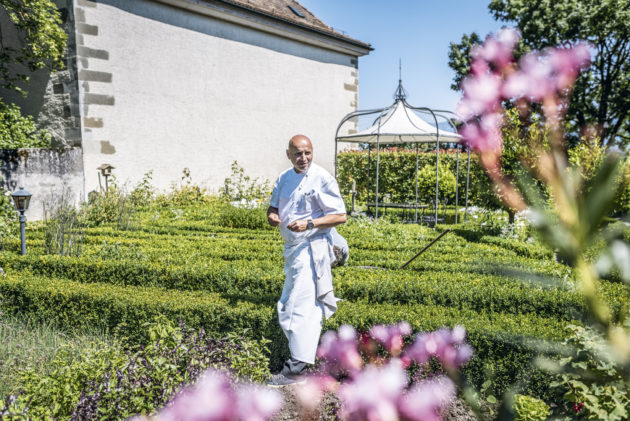
Hotels and restaurants in Switzerland uphold sustainability standards in their everyday work – from the bottom up.
Many of the dishes on the menu are cooked with locally sourced produces. The cheese is made by the uncle, the wine bought from a cousin and the village farmer provides the meat. Fresh berries and mushrooms picked in the nearby forest add a delicious touch to any meal. Some hotelshave their own kitchen gardens where they grow organic vegetables and herbs, some dry the laundry outdoors. Others even keep a flock of sheep and have their wool transformed into warm woven rugs or pillows for hotel guests. Surprisingly, these things are never mentioned when discussing sustainability – for Swiss people it is simply part of their traditions.
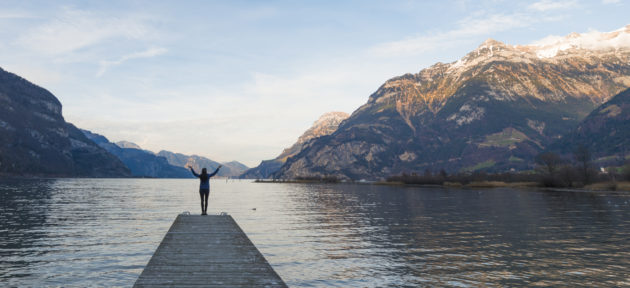
A holiday spent in Switzerland is by definition utterly kind to mother nature.
Outdoor human powered activities such as hiking, biking, swimming, ski-touring or cross-country skiing are a wonderful way to enjoy your days in the nature. Ski lift companies are becoming environmentally innovative with the use of solar cells or renewable energy.
Not to forget that Swiss ski resorts are fully accessible by public transportation.
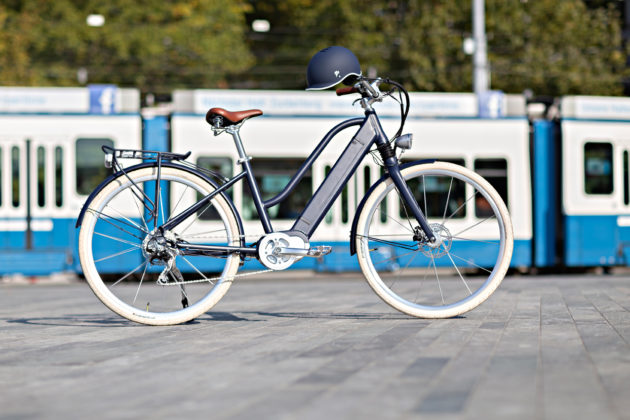
Use public transportation, rent a bike or take a walk.
When visiting a city, use the public transportation. You’ll find trams in most major cities in Switzerland or rent a bike to experience the city and walk, there are no better ways to discover a new city.
Moreover, many of the major cities in Switzerland offer free public transport if you stay overnight at one of the city’s hotels.
In Geneva, all single use plastic is banned since. More and more stores and markets are focusing in locally produced products.
Carouge, which is a city within the city, works hard to avoid packaging and more stores are investing in bulk sales and aiming for zero waste.
Neuchâtel looks set to become the first city in Switzerland to outlaw the use of plastic straws in cafes from 2019, following a global trend to reduce plastic waste.
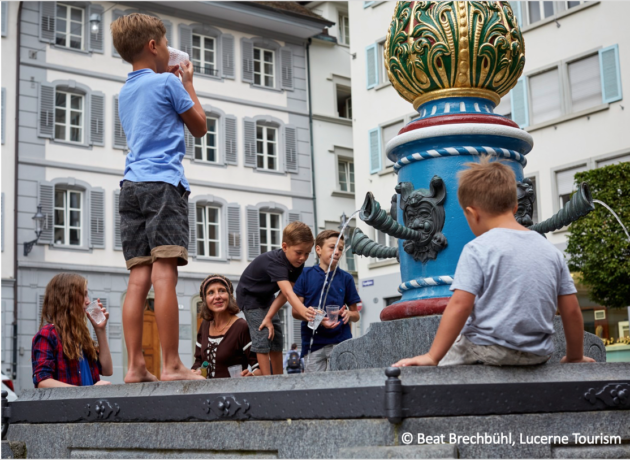
Bring your empty water bottle where ever you are, there are fountains with fresh water all over Switzerland.
Lucerne has been providing us with fresh drinking water for more that 600 years. Thanks to over 200 fountains with drinking water of the highest quality, guests in Lucerne never have to do without, even when on the go. That is why Lucerne Tourism wants to encourage guests to use these fountains as their go-to water source when they are out and about in Lucerne.
However, this is not unique to Lucerne, these fountains are found throughout the country.
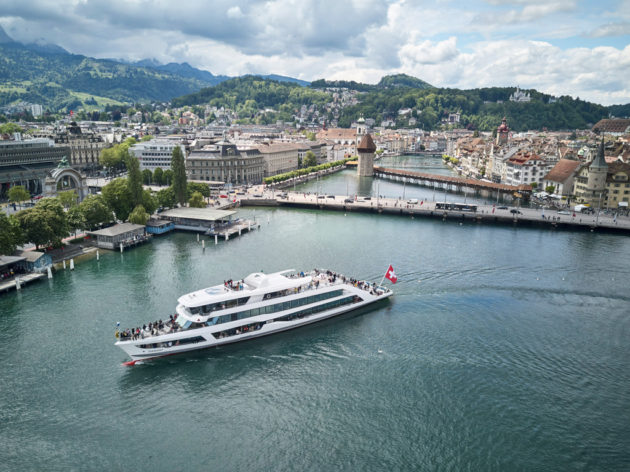
MS Diamant is Switzerland’s first climate-neutral regular service boat.
MS Diamant is running on the Lake Lucerne. The modern motor vessel is a landmark with underwater view, a lake-water footbath and the inner gallery with its impressive glass dome In addition, it sets new standards as Switzerland’s first climate-neutral regular service boat is powered by hybrid propulsion, which leads to a significantly lower fuel consumption and there-fore lower CO2-emissions.
Ecology ranks high in Switzerland: Countless studies prove that Switzerland belongs to the world-best category concerning sustainability.
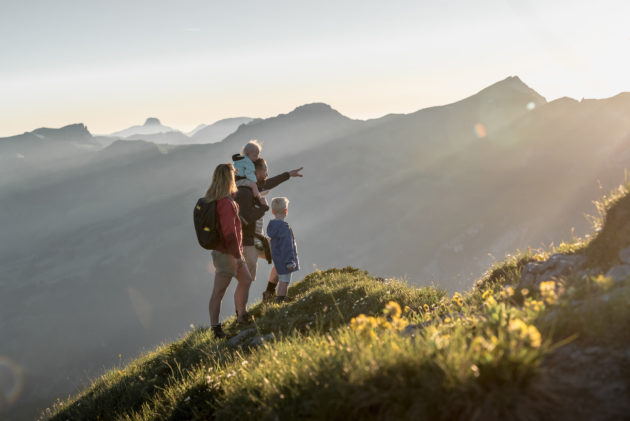
As a visitor, one can easily influence your own carbon footprint.
- Use our extensive public transportation system. Apart from being a climate-smart alternative, it also provides a moment of relaxation while gazing at a fantastic landscape through the valleys, up the mountains, among the vineyards and along the lakes.
- Eat and drink locally produced, feel free to ask at the restaurant what is locally produced on the menu. Did you for example know, that Switzerland produces excellent wine and beer.
- In the delicate ecosystem of alpine meadows, every flower counts. Please refrain from picking our beautiful but fragile flowers when walking in the mountains as they are important for the conservation of the unique alpine flora.
- Always have an empty water bottle in your bag and re-fill in our public fountains! 80% of the Swiss drinking water stems from natural springs and groundwater, and the rest from lakes. Our tap water demonstrates a more balanced ecology as opposed to water purchased in bottles and mineral waters travelling from near and far.
- Respect the areas of the mountains intended for the wildlife, so-called “wildlife zones” during the winter season. Wild animals risk losing their crucial space for retreat as soon as visitors crisscross the mountains as they please. Animals, of which some need rest to be able to switch to hibernation-like status, might not recover sufficiently and fail to reproduce after a hard winter. Some will starve to death or die as a result of exhaustion.
SwitzerlandMobility promotes and coordinates hiking, biking, mountain biking, skating and canoeing for leisure and tourism in Switzerland. The route network covers over 20,000 kilometers of Swiss soil and is perfectly coordinated with public transport to ensure seamless travels!
Parks of national significance help enhance and maintain natural habitats and particularly beautiful landscapes. The 18 parks in operation or planned cover a 610,900 hectare-area, respectively 6,109 square kilometers, corresponding to 14.8% of Switzerland’s surface.
Switzerland – Nation of recyclers
Swiss citizens are champions when it boils down to recycling – and 94% of old glass and 81% of PET containers make their way to special collection points instead of household bins.
Tree-land is on the increase: Since 125 years legislation has ensured that 30 percent of Switzerland’s surface is made up of forests and woodlands –tendency increasing. Amongst other things, trees protect from avalanches and help sink CO2 levels.
